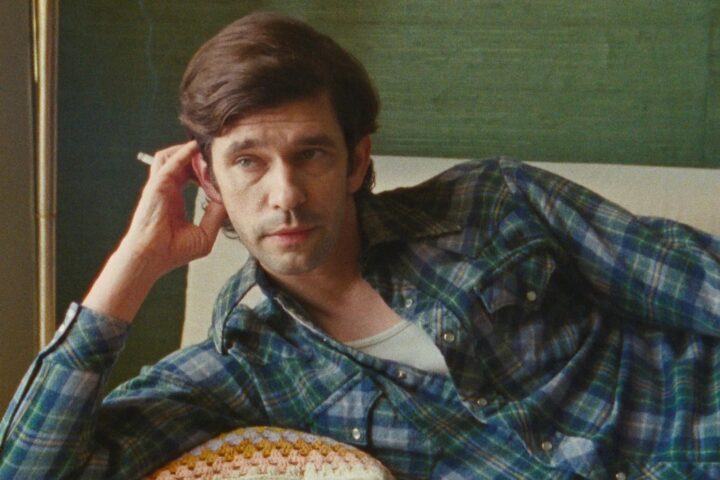Composed almost entirely of police bodycam and interrogation room CCTV footage, Geeta Gandbhir’s The Perfect Neighbor tries to make sense of a senseless killing that happened in Ocala, Florida, in 2023. At first, the documentary plays out like a mystery, as we hear from both sides of a petty neighborhood dispute and try to figure out who’s lying. Since we know from the beginning that this conflict will end in a death, we also spend this time wondering how something so small could possibly have ended so tragically. And then, when the truth emerges, it becomes a powerful statement about the Stand Your Ground laws that have made these tragedies so much more commonplace, and justice afterwards much harder to achieve.
The film begins on the night of the shooting as first responders arrive on the scene to find people in a state of pure panic. All we know is that a woman has been shot. To tell the rest of the story, Gandbhir then uses the bodycam recordings taken during the other visits that the police had made to the street in the preceding years, which turn out to be quite numerous.
All of these incidents basically go down the same way. Susan Lorincz is an older white woman who insists that she’s being harassed by the children across the street—a claim that they and their parents furiously deny. It’s a mundane dispute common to suburban enclaves the world over, wherever two groups of people with incompatible lifestyles find themselves sharing a street. It’s the sort of thing you might stumble upon on the r/AmItheAsshole subreddit, primed to spark furious debates about whether this is a case of a poor woman who just wants some peace or a child-hating Karen who’s causing trouble for everyone.
Even though we’re getting nothing but raw footage, taken from an objective observer, The Perfect Neighbor still effectively presents us with a she-said/she-said scenario, at least at first. The police, after all, only arrive in the aftermath of a dispute, meaning we don’t see the incidents themselves. Instead, we just hear the competing versions of events offered by Susan and her neighbors. And with each interview, the truth of the matter becomes a little less clear.
Susan seems so reasonable when she speaks to the police, but then she’s the one who called them. Others on her street are absolutely unanimous in their verdict that the kids are faultless and she’s a menace, but at times they echo each other so completely that it begins to sound a little like a group of people who’ve worked together to get their story straight, or perhaps just a tight-knit community covering each other’s backs against that one person they all hate.
Even as Susan’s behavior becomes visibly more erratic throughout the footage glimpsed here, it’s hard to tell whether this is the mask slipping and revealing the unhinged woman that her neighbors described, or the fraying mental health of a person made into a pariah simply for wanting to be left alone in her own home. Does Susan phone the police constantly because she’s a spiteful nuisance or because they never actually do anything about her problem?
The Perfect Neighbor uses this ambiguity to draw us in, drip-feeding us contradictory testimonies to get us guessing along as if we were watching a murder mystery. And then it drops the axe. We arrive back at the night of the shooting and it’s simply horrible. We watch, in real time, as children scream for their mother. It feels morbidly voyeuristic, and it’s hard not to feel a sense of ambivalence about footage like this being used in such manner, for stirring the same muddy ethical dilemmas that haunt the landscape of true crime.
To its credit, The Perfect Neighbor takes this incendiary material and aims it at a larger target. Featuring police interviews, courtroom recordings, and a brief final chyron to close things out, the final portion of Gandbhir’s trenchant film focuses on the Stand Your Ground laws that facilitate these kinds of fatal encounters and then exonerate the culprits. Coupled with the images of those crying children, it’s a finale that leaves you feeling the full, awful weight of both the Ocala case, and the hundreds others like it that take place every year.
Perhaps what’s most impressive about The Perfect Neighbor is how it speaks to so many issues without the use of talking heads, voiceover narration, and other documentary conventions. Racism is only mentioned briefly, almost in passing, but we can see the dynamic at play as an older white woman sits alone in her house, mad and scared over her non-white neighbors.
The film makes plain the danger in laws that allow for lethal force to be deployed based on something as nebulous, subjective, and impossible to prove as fear. And it reveals how useless the police—even ones as unfailingly professional and polite as the ones seen here—are at preempting and settling conflicts before they spiral out of control. Perhaps worst of all, the film hits you with the realization that everything that’s happened here is going to happen again.
Since 2001, we've brought you uncompromising, candid takes on the world of film, music, television, video games, theater, and more. Independently owned and operated publications like Slant have been hit hard in recent years, but we’re committed to keeping our content free and accessible—meaning no paywalls or fees.
If you like what we do, please consider subscribing to our Patreon or making a donation.



